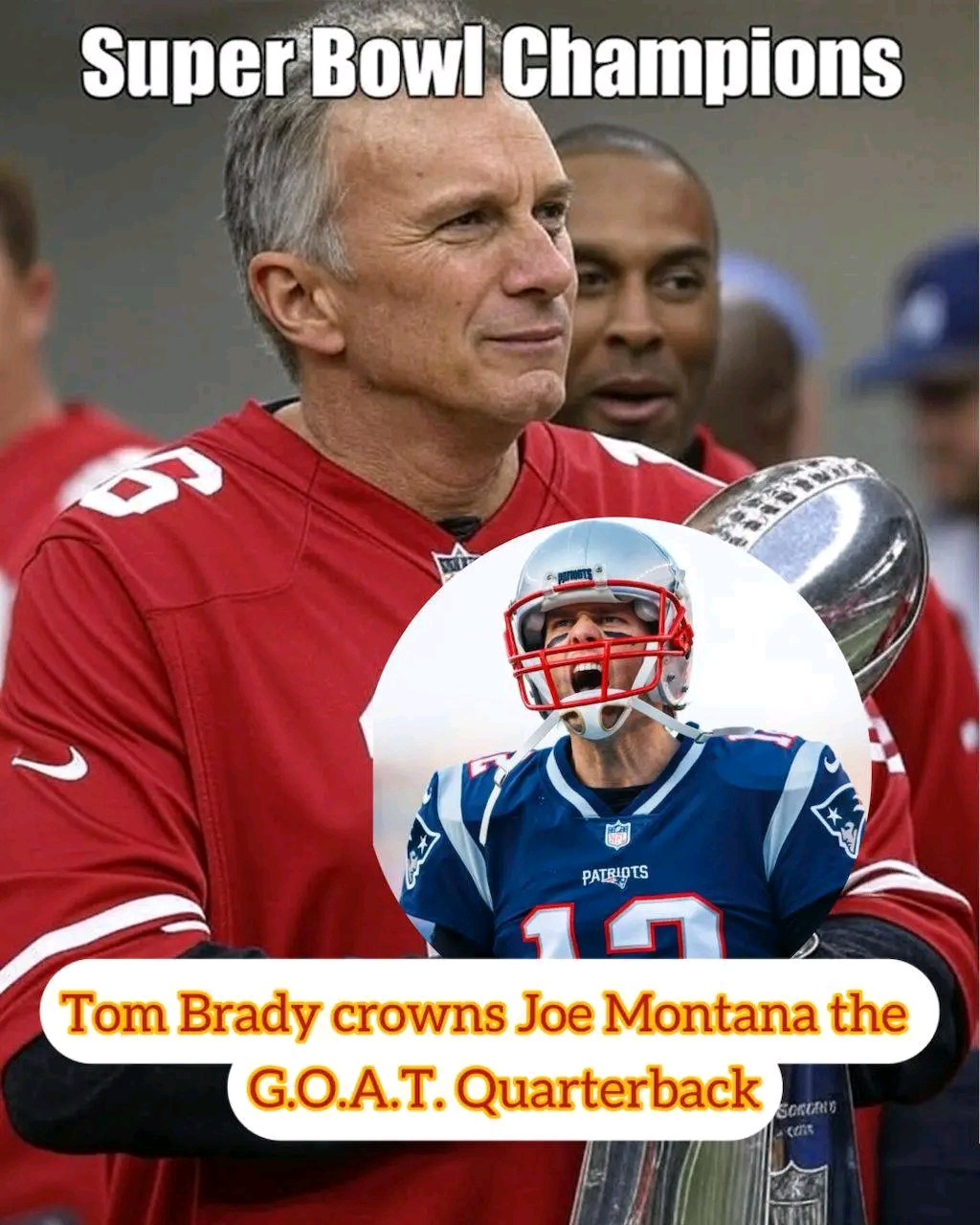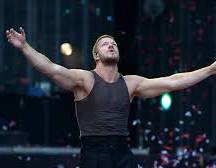
When Tom Brady speaks, the football world listens. So when the seven-time Super Bowl champion recently declared Joe Montana as the greatest quarterback of all time, it sent shockwaves through the NFL community. Coming from someone widely considered the G.O.A.T. himself, the statement wasn’t just humble—it was historic. It sparked debates, rekindled nostalgia, and affirmed the enduring legacy of the 49ers legend who set the standard for modern quarterbacking.
Brady’s admiration for Montana isn’t new, but this latest declaration feels definitive. In a candid interview on the “DeepCut with VicBlends” podcast, Brady spoke openly about how Montana inspired his career and shaped his view of the position. “I always looked up to Joe. He was everything I aspired to be,” Brady said. He went on to emphasize that while stats and rings matter, the way Montana commanded the game and delivered under pressure placed him in a class of his own.
Joe Montana’s résumé is staggering even by today’s standards. Four Super Bowl titles, three Super Bowl MVPs, and zero interceptions across those championship games. His postseason poise was legendary, and the phrase “Joe Cool” wasn’t just a nickname—it was an embodiment of his composure in the biggest moments. Brady acknowledged that no one looked more in control during crunch time than Montana.
What makes Brady’s declaration so powerful is the context. Brady has broken virtually every meaningful quarterback record: most Super Bowl wins, most passing touchdowns, and most career passing yards. If anyone has the right to call himself the greatest, it’s him. Yet here he is, tipping his cap to the man who once inspired a young kid from San Mateo to chase greatness.
Montana’s influence on Brady is more personal than statistical. Growing up in the Bay Area, Brady idolized the 49ers and vividly recalls watching “The Catch” in the 1981 NFC Championship game. That moment, and the calm brilliance with which Montana executed it, became a formative memory. “That was the moment I fell in love with football,” Brady has said in the past, referring to Montana’s heroics.
While debates about the quarterback G.O.A.T. will never be fully settled, Brady’s words add a layer of nuance. Greatness, as he suggests, isn’t only about the numbers—it’s about the impact, the presence, and the timeless influence a player carries. Montana changed the way people viewed the quarterback position. His quick release, pocket presence, and ability to read defenses were ahead of his time.
Critics might argue that the game has evolved, and modern quarterbacks face different challenges. But Brady’s endorsement highlights something deeper: the rare ability to elevate everyone around you and deliver perfection when it matters most. Montana’s surgical drive in Super Bowl XXIII, ending in a touchdown to John Taylor with 34 seconds left, remains one of the most iconic moments in NFL history.
In a league where players often dodge comparisons or deflect praise, Brady’s honesty stands out. He didn’t need to make that statement, yet he chose to. That speaks volumes about the reverence Montana still commands among the elite. It also shows that even the best can remain in awe of those who came before them.
Montana himself responded graciously, calling Brady “a class act” and “a once-in-a-generation competitor.” Their mutual respect bridges two eras of football greatness—one defined by surgical precision and icy calm, the other by longevity, resilience, and relentless competitiveness. It’s a passing of the torch that feels both symbolic and sincere.
Ultimately, Brady’s declaration won’t end the G.O.A.T. debates, but it reshapes the conversation. It reminds us that greatness isn’t just measured in accolades but in inspiration. And for Tom Brady—the most decorated player in NFL history—the greatest of all time remains the man who first made him believe in the power of a perfect throw.


